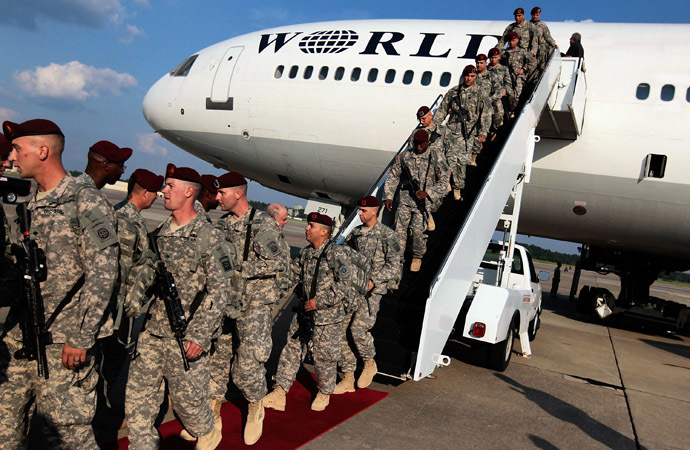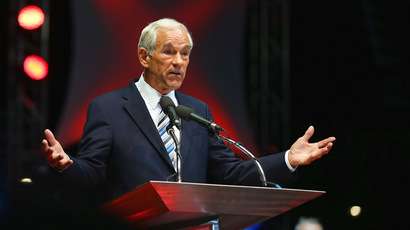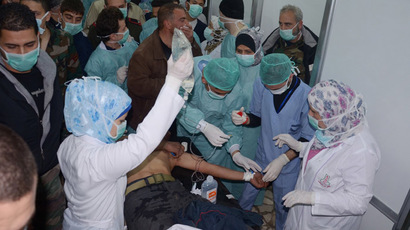UN, Syria hold ‘productive’ chemical arms talks as US ponders political solution
The Syrian government and the UN delegation investigating the alleged use of chemical weapons in the country’s civil war said on Saturday that they took part in "productive" negotiations. Meanwhile, the US is urging a political solution to the crisis.
After meeting with Syria’s deputy Prime Minister and Foreign
Minister in Damascus, the UN delegation said in a Saturday
statement that the “discussions were thorough and productive and
led to an agreement on the way forward.” The statement did not
specify whether UN inspectors would be allowed into Syria.
In turn, the Syrian Foreign Ministry said the discussions were
"comprehensive and fruitful and led to an agreement on the
means of moving forward," as quoted by Syrian state news
agency SANA.
Although some authorities within the US continue to calculate the
expenses of solving the Syrian conflict militarily, the general
tone of the voices coming from Washington is changing.
The US military recently concluded that 100 per cent seizure of
Syria’s chemical weapons cannot be guaranteed even with the
thousands of special operations forces on the ground that would
be needed “to assault and secure critical sites,” Joint
Chiefs of Staff Chairman Gen. Martin Dempsey wrote in a July 19
letter to the chairman of the Senate Armed Services Committee.
“The impact would be the control of some, but not all chemical
weapons,” he added.
“At a minimum, this option would call for a no-fly zone as
well as air and missile strikes involving hundreds of aircraft,
ships, submarines, and other enablers,” Dempsey acknowledged.
“Thousands of special operations forces and other ground
forces would be needed to assault and secure critical
sites...costs could also average well over one billion dollars
per month,” he wrote.
In an interview with Defense One, Gary Samore - who worked on the
Syrian chemical weapons issue as White House coordinator for arms
control and weapons of mass destruction – said “it would be a
huge, complicated undertaking in which all kinds of things could
go wrong.”
Meanwhile, former Deputy Commander of the US European Command,
Charles Wald, told America’s National Journal that he didn’t know
“if it would be a campaign, but it would be a very
sophisticated, multi-service operation.” The mission would
involve knocking out Syrian air defenses.
The US government is not exactly sure of the whereabouts of
chemical weapons, because Syria has been relocating military
warehouses due to terrorist threats.
Syria’s chemical arsenal allegedly includes different types of
chemical agents such as sarin, mustard gas, and VX nerve agent.
Some are reportedly ready for use and stored in many different
locations.
Because Syria spent billions on multi-layered air defense, a
no-fly zone over the country could only be established at a high
price. Without doing so, special operations forces would have to
arrive at chemical weapons stockpiles on foot.
The same would apply to 4,000 troops of the US Army’s famed 82nd
Airborne Division which recently trained to seize chemical
weapons in Syria, CBS News reported.
Old-fashioned bombings of hypothetical chemical weapons
warehouses are a bad idea too, according to specialists.
“I know that they have looked at chemical defeat munitions
that would incinerate weapons stockpiles and I have not heard a
great deal of enthusiasm on that topic,” GlobalSecurity.org
director John Pike told America’s National Journal. Blown up
chemical munitions could end up spreading around and affecting
the civilian population, a congressional expert told Defense One.
On top of it all, the US army would have to either evacuate the
seized chemical weapons back home or bring special equipment to
destroy the weapons on site. Regardless of the financial cost,
the operation looks unlikely since the US has so far failed to
destroy its own chemical stockpiles which it is obliged to do in
accordance with international agreements.
All in all, a military solution for the Syrian crisis “is a
military operation which I think our military hopes they never
have to carry out,” Gary Samore said.
‘A political solution requires leadership to start talks’
The House and Senate Intelligence Committees have recently given
a green light to arm Syrian rebels. Despite the congressional
approval, US Secretary of State John Kerry declared on Thursday
that there is no military solution to the Syrian Crisis.
“There is no military solution to Syria. There is only a
political solution, and that will require leadership in order to
bring people to the table,” John Kerry said. The statement
would not have been expected to come from the Obama
administration just a few short months ago.
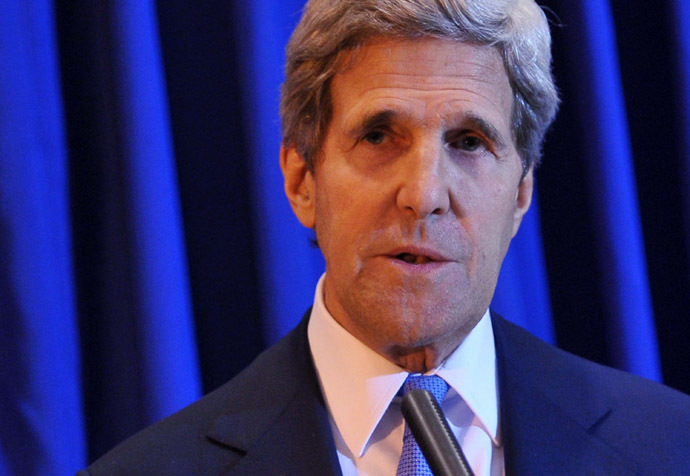
The Syrian opposition, which failed to gain success on the
battlefield and was refused weapons supplies from NATO member
states, has also displayed previously unseen open-mindedness.
“In principle nobody is against Geneva-2, but we cannot enter
into talks while the regime continues to kill hundreds every day
and use arms of mass destruction,” Burhan Ghalioun, a senior
Syrian National Coalition member, told AFP.
"The Syrian opposition committed that they believed Geneva-2
is very important and they agreed to work over the course of the
next couple of weeks to pinpoint the terms, the conditions under
which they think it could work," Kerry said following his
meeting with the leadership of the Syrian National Coalition.
“There are still obstacles that need to be overcome for the
Geneva-2 conference to take place,” Russia’s UN envoy Vitaly
Churkin announced on Friday, citing disagreements within the
Syrian opposition camp. Still, the Geneva-2 conference “has
good chances to convene” in order to get the Syrian opposition
and President Bashar Assad’s representatives to the negotiating
table simply because “the alternatives are too horrifying,”
Churkin explained.
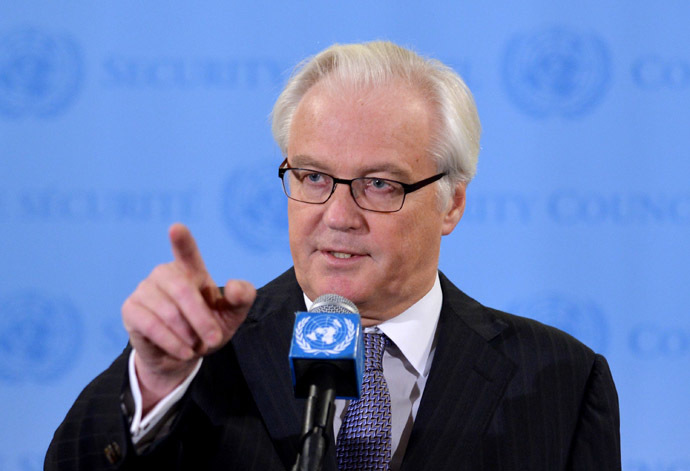
The two year civil war between the Syrian government and
opposition rebels has claimed more than 100,000 lives, according
to UN estimates. The ongoing violence, which has raged since
March 2011, has forced millions to flee their homes. Many worry
the uprising will spill over into a broader regional conflict as
it threatens to destabilize neighboring Jordan and Lebanon.
